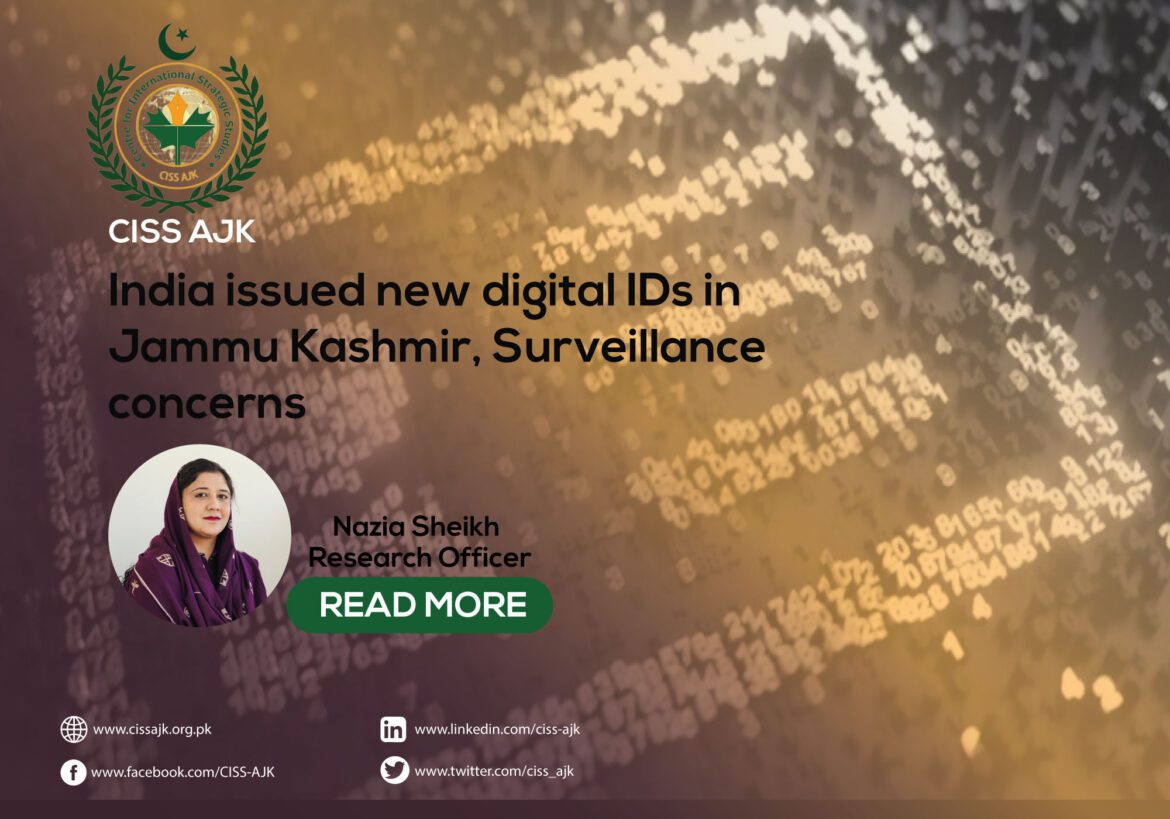India is moving towards digitization as the government is now planning to develop new digital ids in 2023 in Indian administrative Kashmir. According to the government, the new database will enhance the approach to public welfare,but many Muslim Kashmiris view this step of the government as expansion of its influence over their lives.
The Digital India scheme is an initiative of the government to vast digitization, containing property labels, health records, utility payments, and railway reservations for better governance.
An initiative of new family Ids in Jammu Kashmir has produced frustration and anger among people as the program will increase monitoring and data hacks. People at present are using ID cards if they feel they need to acquire any public welfare program. so why this is necessary?
Local authorities said that an eight-digit code allocated to each family would enhance people’s reach to social welfare programs such as aid or grant food benefits.
Prerna Puri, a commissioner in Indian-administered Kashmir’s information technology department said that people will not register themselves under different programs as data will be automated based.
The removal of the sovereign status of Jammu Kashmir in 2019 by the Modi government divided the state into two federal regions, targeting more influence on Muslim majority regions. The people of Kashmir are viewed with deep suspicion after the abrogation of Article 370, “symbolizing the lack of trust”.
A human rights activist Angad Singh Khalsa said, that even government wants to provide social welfare to people by developing new ids, the government dealing with the people of Jammu Kashmir has made uncertainty about their goals.
In 2020, the government made it mandatory for everyone to apply for domicile certificates in Jammu Kashmir that permit them to vote in local elections, admission to universities and jobs, and purchase farmland and houses. Many Muslims did not register themselves for these certificates because the BJP’s intentions were not loyal to Muslims. The new family Ids made people more suspicious.
Data collection from JK family’s ID and the lack of federal data protection law makes people feel helpless to inspection by the government, said Anushka Jain, policy counsel at the Internet Freedom Foundation, a digital rights group in New Delhi.
The latest draft of the delayed data protection law is not however passed by Parliament. People are doubtful because they have no idea how their data will be utilized and accessed, lack of protection law regarding data collection further create worrisome situation.
Even with individual Aadhaar IDs, there is so much prohibition. With family IDs, if there are mistakes in the information or if one member is entrapped in something, then the entire family can be disqualified, so the possibility for damage is much greater.
Administration in Indian-administered Kashmir will collect data with the consensus of beneficiaries, and related data protection laws will be applied. Officials have also said they will build up the cybersecurity structure.
People’s remarks on digital Ids highlight their concern as they don’t understand how an eight-digit ID will facilitate people when there are so many other difficulties, such as the economic disaster, an absence of hospitals, and an insufficient education system. They can’t even protect Aadhaar data. Instead of gathering more data to monitor people and disrupt their secrecy, the government should focus on giving jobs to jobless youth.
Journalists and security researchers have also identified many weaknesses and data hacks connected with the program but as per government representatives biometric data was safe from hacking.

